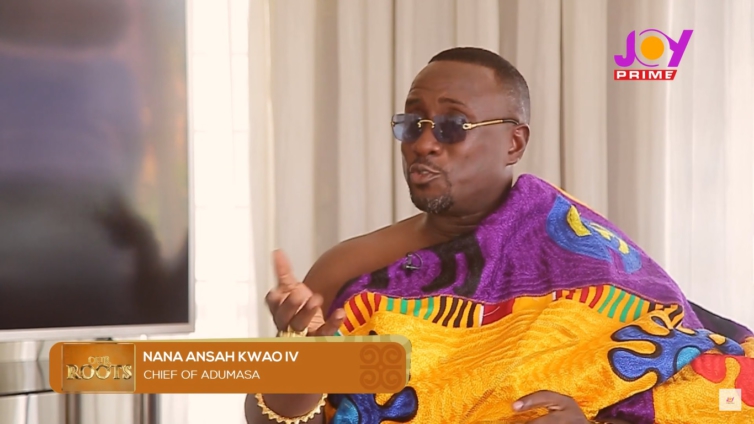The Chief of Adumasa in the Eastern Region, Nana Ansah Kwao IV has revealed that Akan chiefs wield authority and not power.
According to him, the traditional rulers in an Akan setting do not practice a dictatorial style of leadership. Instead, power and authority are shared such that the chief works hand in hand with the council of ministers to ensure peaceful rulership and development in the society.
Nana Ansah Kwao IV mentioned that the forefathers thought it wise to give authority to chiefs and power to the council of ministers because they realised that absolute power is corrupt.
Hence, chiefs in the Akan society do not have the power to use their authority, and the council of elders also does not have the authority to use their power.
"So as a chief, I have 99% of the authority but almost no power. The power, however, is split up in small pieces among my ministers, but they don’t have authority. So they don’t have the authority to use their power, and I don’t have the power to use my authority. At any given time, before a chief makes a move, he has to consult his ministers," he said.
This, according to him, eliminates dictatorship and helps chiefs be directly accountable to the people. This also promotes good governance in society and paves the way for development to take place.
Nana Ansah Kwao pointed out that though the system of governance in Ghana has changed, the roles of chiefs in the country have not been curtailed. He explained that, currently, the roles of chiefs in Ghana have increased.
According to him, in recent times, chiefs have found themselves stepping in to help curb and solve issues that the government sometimes fails to solve in the community, aside from the roles originally set up for them to follow.
"The role and responsibility of the chief are way greater than they used to be. People will come and complain about problems they face in their schools, hospitals, and many more places. So the role and responsibilities of chiefs now are unenviable. Everything falls under the jurisdiction of the chief."
Ansah Kwao IV apologised to the youth of Ghana, who, by no fault of theirs, have become ignorant about the culture and its practices.
He also pointed out that the rites performed in stooling a chief have no spiritual hands involved and asked youths not to believe the myths that say otherwise.
He however encouraged the youth to go back to their community of origin and learn more to help them stay abreast with their culture, keep it alive, and pass it down to future generations.
Latest Stories
-
Elevating Ghana’s creative industry: A blueprint for competing with Nigeria and South Africa
24 mins -
Poor finishing a problem for Asante Kotoko throughout the season – Prosper Ogum
44 mins -
Samini teams up with Francis Osei for ‘Sticks N Locks’ EP
51 mins -
Government should resource record labels – Seven Xavier
1 hour -
I need majority in parliament to successfully complete my term – Akufo-Addo pleads
1 hour -
Next NDC government will not recognise illegal contracts signed by current administration – Sammy Gyamfi
1 hour -
Premier League clubs vote in favour of spending cap plans
2 hours -
Nigeria’s fuel crisis brings businesses to a halt
2 hours -
King Promise impresses fans at sold out show in Singapore
2 hours -
Ejisu by-election to proceed after plaintiff withdraws injunction application
2 hours -
CSOs and NGOs unite to push for priority demands at INC-4
2 hours -
Fuel tanker bursts into flames on Kumasi-Accra highway
2 hours -
EC’s stolen BVR kits, laptops: One granted bail, three still on remand
2 hours -
2 Things: Sista Afia releases first song off her upcoming album
2 hours -
GHS to embark on COVID-19 vaccination campaign starting May 4
3 hours

